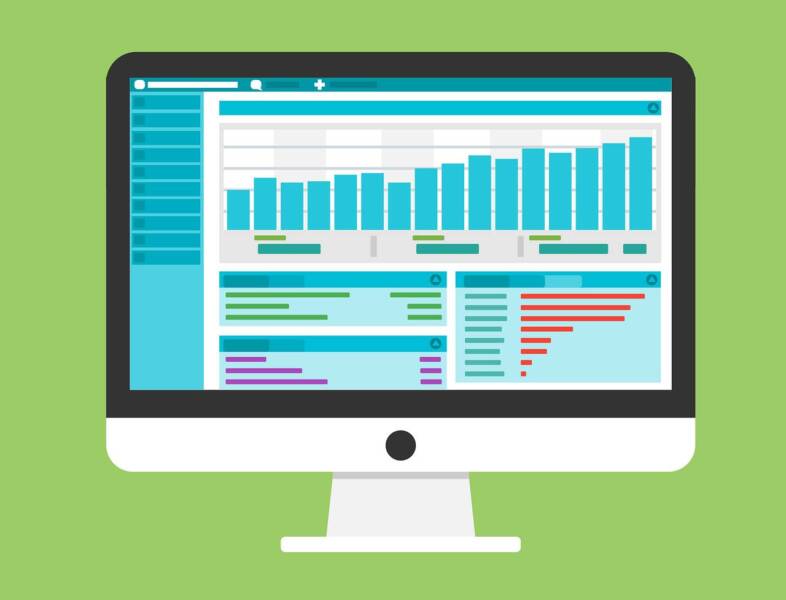As we move into the future, data has become a core asset at the heart of any successful business. To make informed decisions, you need access to accurate, up-to-date information. But it’s no longer enough to have access to data simply—you need the right tools and processes to ensure your data is reliable and secure. This is where data governance tools come in. This post will explore what data tools you should be incorporating into your business in 2023.

Data Quality Management Tools
Data quality management (DQM) tools are essential for ensuring that your organization’s data is reliable and valuable. These tools help assess the accuracy of incoming data from various sources, identify any errors or inconsistencies, and provide insights into how different systems can be integrated more effectively. DQM tools also help identify trends and patterns in your data that can inform decision-making.
Data Governance Platforms
A data governance software review claims that a good data governance tools can help organizations ensure that their data meets specific standards of accuracy and reliability. Data governance platforms allow you to set policies and procedures for storing, accessing, using, and sharing data within an organization. They also provide a centralized control point over all aspects of your organization’s data management process—from user access rights to security protocols. By giving you visibility into who is accessing what data and when these platforms can help protect against potential misuse or abuse of sensitive information.
Analytics Software
Analytics software helps businesses make sense of vast amounts of structured or unstructured data by providing actionable insights about customer behavior patterns, market trends, etc. This type of software typically includes features such as predictive analytics, which enables companies to anticipate customer needs before they arise; visualizations for quickly understanding complex datasets; text mining for deriving insights from written texts; machine learning algorithms for more accurate predictions; And natural language processing (NLP) for extracting meaning from spoken words or phrases.
Data Visualization Tool
Data visualization tools enable users to take large amounts of complex information and present it in an easy-to-understand visual format, such as graphs or charts. This makes it easier for decision-makers to quickly understand the implications of their decisions without needing extensive knowledge in analytics or data science.
Additionally, these tools often integrate with other software programs, such as CRMs or ERPs, making them even more helpful for businesses with complex datasets that must be shared across multiple teams or departments. An example of this type of software is Tableau which allows users to easily create interactive dashboards and reports from various sources, including Excel spreadsheets and databases like SQL Server.
Artificial Intelligence Platforms
Artificial intelligence (AI) platforms are designed to automate repetitive tasks through the use of AI algorithms such as natural language processing (NLP), computer vision (CV), robotics process automation (RPA), machine learning (ML), deep learning (DL), etc. AI platforms can be used for various applications such as customer service automation, predictive maintenance, fraud detection, image recognition/classification, etc. Popular AI platforms include Google Cloud and Microsoft Azure Machine Learning Studio (MLS).
Data Mining Tools
Data mining tools are designed to help companies identify patterns and trends in their data that can be used to drive more informed decision-making. These tools typically use machine learning algorithms to analyze large datasets and uncover insights that would otherwise be difficult or impossible for humans to detect. Popular data mining tools include Apache Hadoop, RapidMiner, and IBM SPSS Modeler.
Conclusion
In 2023, having the right set of tools will be essential for any business looking to stay ahead in the ever-evolving digital landscape. With quality management tools like those mentioned above in place, companies can harness their resources better while keeping their customers’ confidential information safe at all times. By leveraging these solutions now–whether through purchasing them outright or through subscription services–businesses can start laying the foundation for a more robust digital presence well before 2023 arrives!

Ingrid Maldine is a business writer, editor and management consultant with extensive experience writing and consulting for both start-ups and long established companies. She has ten years management and leadership experience gained at BSkyB in London and Viva Travel Guides in Quito, Ecuador, giving her a depth of insight into innovation in international business. With an MBA from the University of Hull and many years of experience running her own business consultancy, Ingrid’s background allows her to connect with a diverse range of clients, including cutting edge technology and web-based start-ups but also multinationals in need of assistance. Ingrid has played a defining role in shaping organizational strategy for a wide range of different organizations, including for-profit, NGOs and charities. Ingrid has also served on the Board of Directors for the South American Explorers Club in Quito, Ecuador.







































